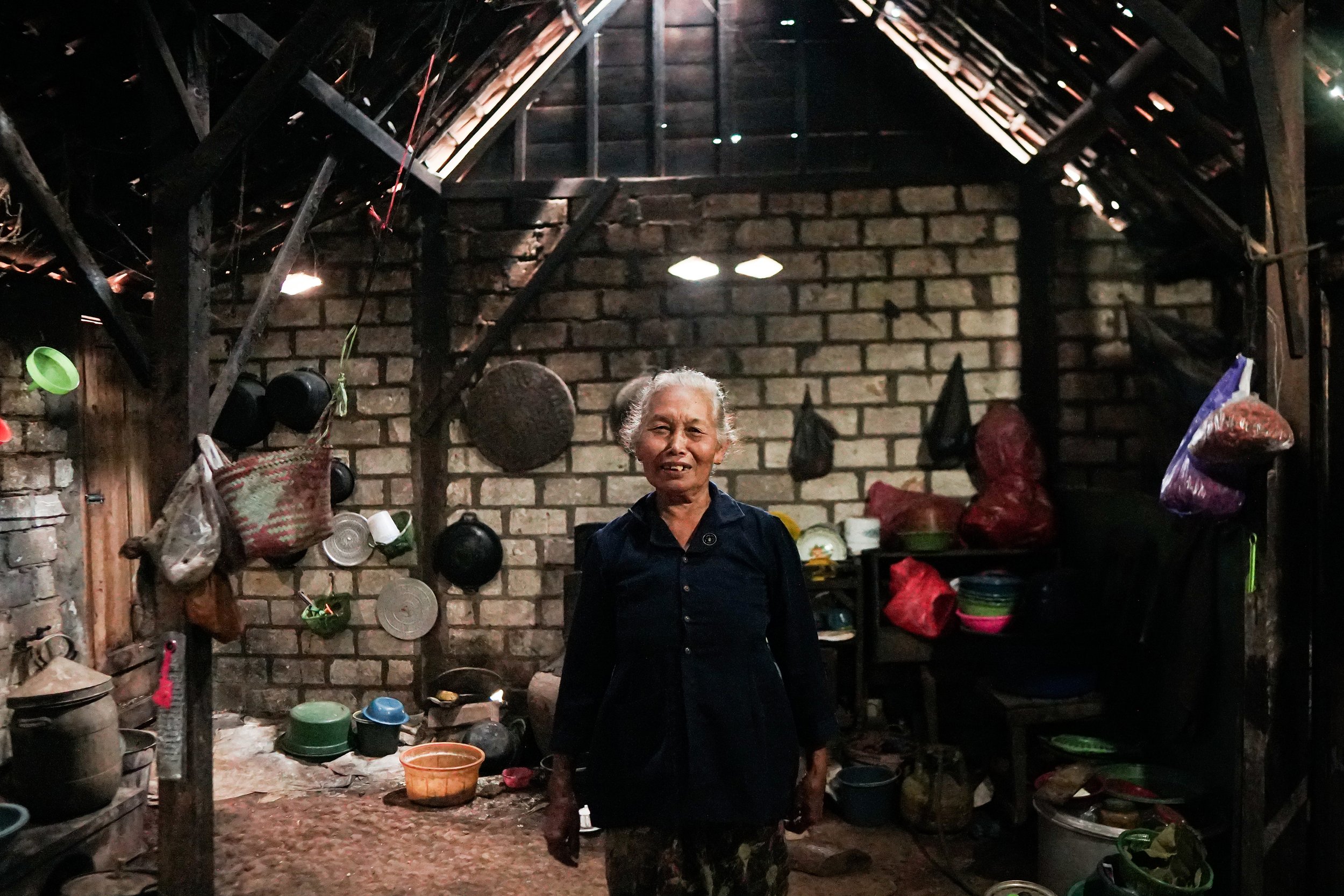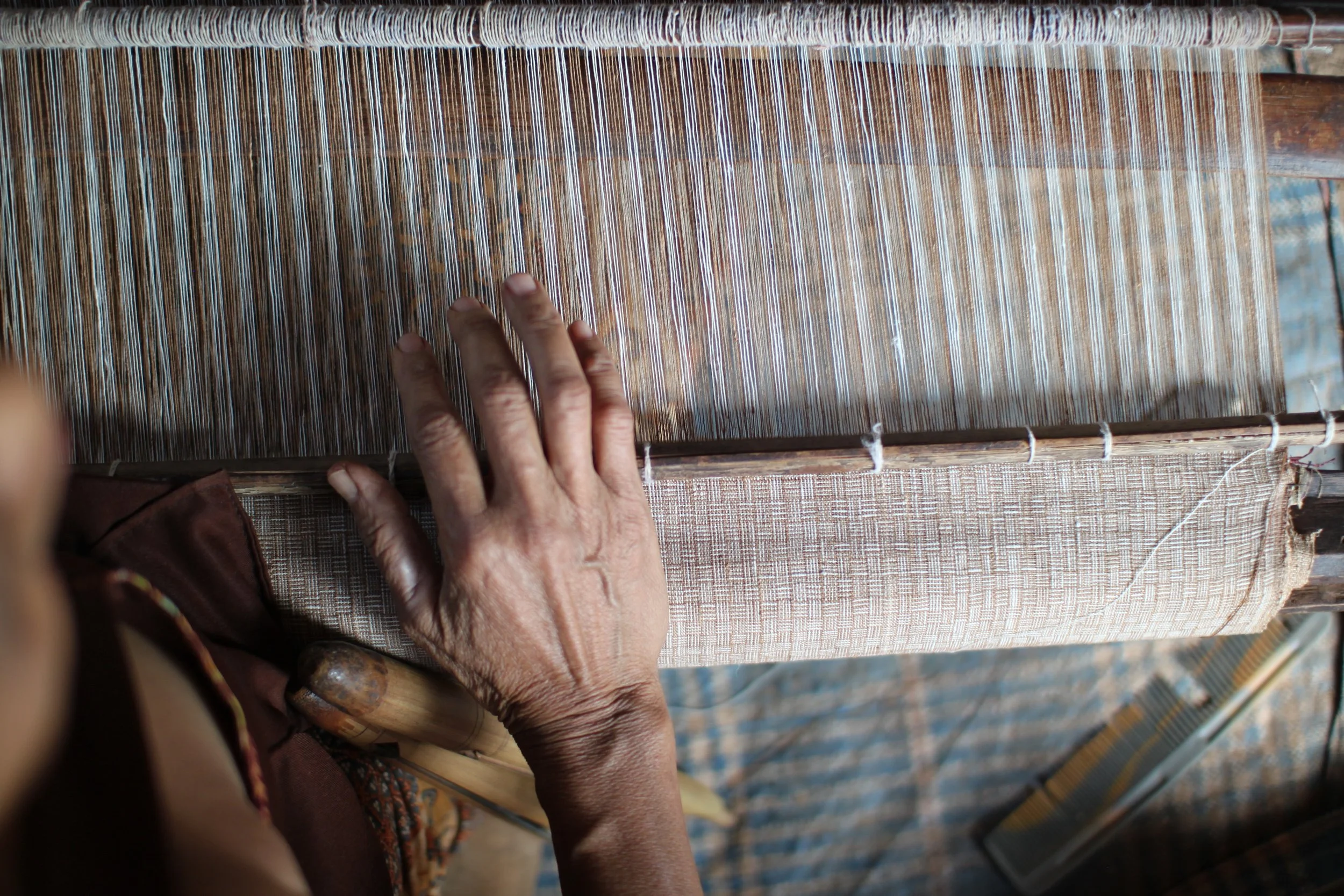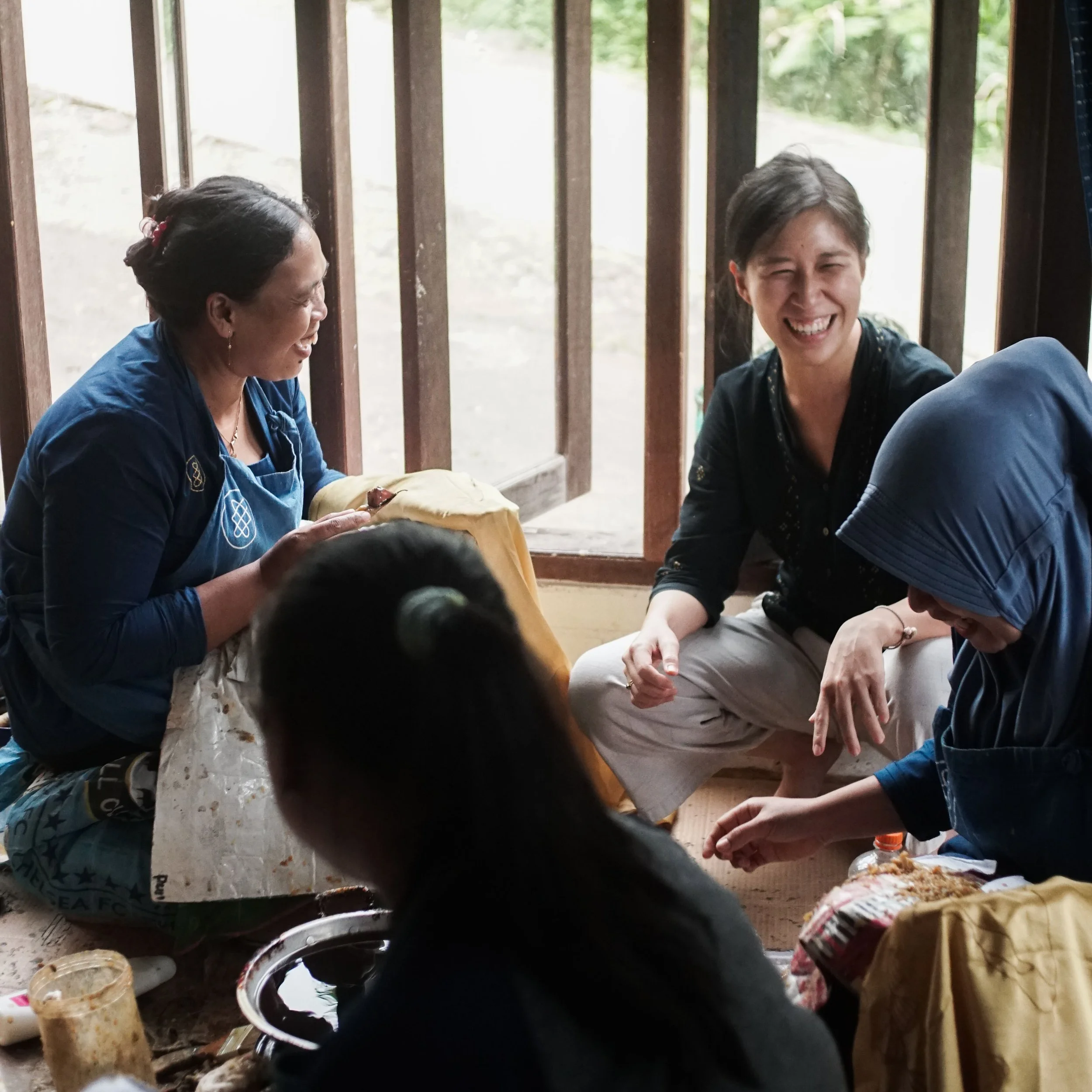What If Your Clothes Can Change Lives?
8 years ago, I felt a longing for meaning. As a development economist, I did a lot of work on poverty alleviation and community developments in rural Indonesia—working and studying about inclusive development, along with the social and environmental issues faced by last mile communities.
Between boardroom and reports, I felt restless—like my work didn't create real, grassroot impact. The kind that changes lives. A burn-out and a bout of depression later, I decided to do my own research. Going village to village, learning about life beyond the comforts I'm used to.
Little did I know that it would lead me to meet the women who would change my life – forever.
It turns out that in rural areas where poverty is rampant, craft is providing a viable opportunity for mothers to pursue economic freedom while taking care of their children at home. In a country where education acts as a barrier for these last mile communities to enter formal employment, craft offers a livelihood option to nearly 30 million people living under poverty.
I knew the concepts of inequality, poverty. The metrics you use to measure it. Yet, they weren’t numbers in reports. They took me in and shared their traditions with me. Their stories broke my heart; it was the first time I realized that not everyone gets the same chance in life.
Meeting the invisible women behind the things we buy everyday changed my perspective on life. Suddenly, a simple choice like what to wear no longer feels simple.
The crafty reality
Thing is, craft is a really complicated industry. Between us and the artisans exists a complex subcontracting layer of factories and middlemen—down to someone making that fabric in her home. In fact, up to 60 percent of handcrafted pieces are made this way. By a woman who couldn’t leave her village because she has to take care of her children—who has no say in what she earns from her work.
There’s currently a lot of discussion surrounding fast fashion and its impact on the workers, but most focus only on factory work. One thing that struck me was that the majority of artisans actually work outside of the formal factory setting. Without any access, most of these women live in poverty. What makes it worse is that as an informal industry, no regulation exists to protect these women.
Suddenly, a simple choice like what we wear everyday doesn't seem so simple anymore. I felt an imperative to find a way that supports, rather than exploits, the humans behind our clothes.
Craft is the 2nd largest employing sector in developing countries like Indonesia, especially for women. Without any access, most of them live in poverty.
Building a bridge
This was my a-ha moment, to realize that there's a broken link between us and the way the things we wear everyday are made. It was then when I felt the need to build a bridge—a model that invites our customers to be part of the solution of some of the world's most pressing issues.
Learning from the failures of previous development interventions, I decided to take on a different route. Moving away from aid to building a social enterprise from the ground up.
SukkhaCitta is my model for change, not a fashion brand. From the start, it is my intention for it to be a platform to address a real, systematic problem faced by our most vulnerable artisans. That's why we work hard, providing access to education - while sustaining our impact by connecting them to you.
Since then, I’m on a mission to meet everyone in the fashion supply chain. Tracing the origin of what you wear all the way to the farm - and changing how it’s made.
Every choice has an impact
When you purchase a SukkhaCitta piece, the first thing you realize is that there are real lives impacted through your choice. The power of this idea is vast. You are not giving them aid, you are giving them a chance to earn a wage that allows them to support their families.
The reason this is significant is that it allows these women to keep the one thing that is so often taken away from them: Pride. When someone appreciates your work and you are able to make a living from it, your pride is intact. Accepting charity means that you have to swallow your pride and accept, because you have no other choice.
Offering people this pride leads to empowerment—and empowerment leads to real change. There’s this sense of pride because ultimately [there is] empowerment that wasn’t there before, this belief in themselves.
During our last field trip to our first village, I was surprised to see A4 papers on the wall. Apparently, the women were brainstorming how they can improve the education of the children in their village through scholarships. I nearly broke into tears.
I think this is the essence of empowerment: when they feel like they can change their own lives and are taking active steps to be agents of change in their own communities.
As a tiny social enterprise with big dreams, I just want you to know how much your support matters. It is you who make our work possible. You inspire us to be better, to do something that's never been done - especially on days where the struggle are overwhelming.
As we celebrate another year of changing lives, I couldn’t help to feel grateful of all the impact we created together these past 7 years.
SukkhaCitta means happiness in Indonesian. It has been my greatest joy scaling it to a movement it is today. Inspiring communities globally to demand more from the things we buy everyday.
And if there's anything I learnt from running a social enterprise, it's this:
Big changes start small. It doesn't happen in huge leaps, but through a collection of seemingly tiny choices. Every day, what guides us is not to be bigger. But to be better stewards of the Planet. And how we can work together to leave the world kinder than when we found it.
Finding ways to not only do less harm, but how we can create clothes that impacts the world positively. Investing in regeneration and growing our own cotton when others told us to hibernate.
This year, we took it one step further by being the first certified B Corporation voted Best for the World™ in Indonesia and the first fashion brand in the world to be certified Ethically Handcrafted™ by NEST. It’s a huge deal in an industry plagued with exploitation and pollution, especially for women in the informal sector.
You see, SukkhaCitta is no longer my story. It is ours. It is the support of people like you, purchasing, sharing and contributing to our foundation that allow us to go mud-deep into changing how clothes are made.
Together, we’ve created a different kind of beauty.
One that leaves the world a better place with every choice.
I hope you’ll remember this every time you wear our Ibus’ work. That it’ll remind you of your purpose, your dreams, and the impact we can have. Never doubt that a small group of us can change the world. We’re on this journey together, and I'm so glad you’re here for the ride.
Your nerd who cares,
D



